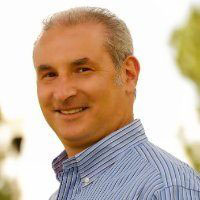An estimated 75 million baby boomers, born between 1946 and 1964, are winding down their careers and heading into “repurposement” in the United States. That’s roughly 10,000 people per day turning 65 years old. According to U.S. News, the current 40 million senior citizens will swell to 89 million by 2050. A huge wave is coming, and the senior living industry is not ready for it.
This trend has resulted in a growing need for highly-skilled professionals in the area of senior living management. Millennials, and even those of Generation Z in the next five to 10 years, will play a significant role in meeting the industry’s need for succession planning and developing future leaders, as they continue to overtake older generations in the workplace.
Colleges, universities and technical education programs are primed to prepare this next generation of professionals and help bridge the growing workforce gap. At Washington State University’s (WSU) Carson College of Business, hospitality business management students are showing increased interest in the senior living management program. Through classroom, experiential learning and field trips, the school is showing them that senior housing is not what it used to be – it has evolved to become more closely aligned with hospitality businesses such as hotels.
Since WSU first started teaching an introductory senior living management course, offered as an elective under the hospitality business management major, the program has grown from 12 to 45 students between the Pullman, Vancouver and Everett campuses. The basics of the business are taught in partnership with industry leaders, who provide guest lectures on more specific interests, from leadership, sales and marketing, to financial management and operations, to lifestyle, dining services and the future of the industry.
Considering how the senior living market has changed in recent years – most notably, seniors are living longer, healthier lives, and thus need more activities, social opportunities and hospitality-oriented services – WSU’s curriculum is largely driven by what’s actually happening in the field. By the time students graduate, they gain real-world knowledge and meet industry experts so they can enter the workforce well-prepared. Many students who have successfully found jobs in the senior living industry express that their education in hospitality business serves them well, even more so than traditional medical backgrounds.
The typical resident today is between 70 and 90 years old, socially active and still has a desire to engage in meaningful and purposeful programming. As such, managers require less expertise on the care side and need more expertise in management, operations, sales and programming to meet clients’ lifestyle requirements and provide high-quality services. For purpose-driven millennials, this field presents a great opportunity to make a difference in the lives of seniors and enhance their quality of life as they age.
To continue momentum, WSU is in the process of launching an online certificate program targeting professionals, offering similar courses on-demand for those seeking employment or to be promoted within the industry. Additionally, the university recently announced plans for the Granger Cobb Institute for Senior Living, named after one of the founding fathers of the senior living program at WSU. The institute will offer senior living-specific programs and research opportunities to improve the industry for residents and other senior living business stakeholders.
In the meantime, the senior population will continue to boom, and the industry must adequately prepare the next generation of leaders, managers and caregivers who will serve it. The problem won’t be solved in one semester of college, but educators and practitioners can begin to change the conversation around senior living by providing students and young professionals with experiences that open their eyes to the opportunity. And while it may not seem like an attractive career path for everyone, the senior living industry is certainly one of the most entrepreneurial spaces for those willing to ride the age wave.
Scott Eckstein is a clinical assistant professor and senior living executive-in-residence for the Hospitality Business Management program at Washington State University. He earned an MBA from The Leonard N. Stern School of Business and is a veteran management executive with extensive experience in the senior living industry. He also is a partner in the international senior living and real estate advisory firm of Active Living International, LLC.


